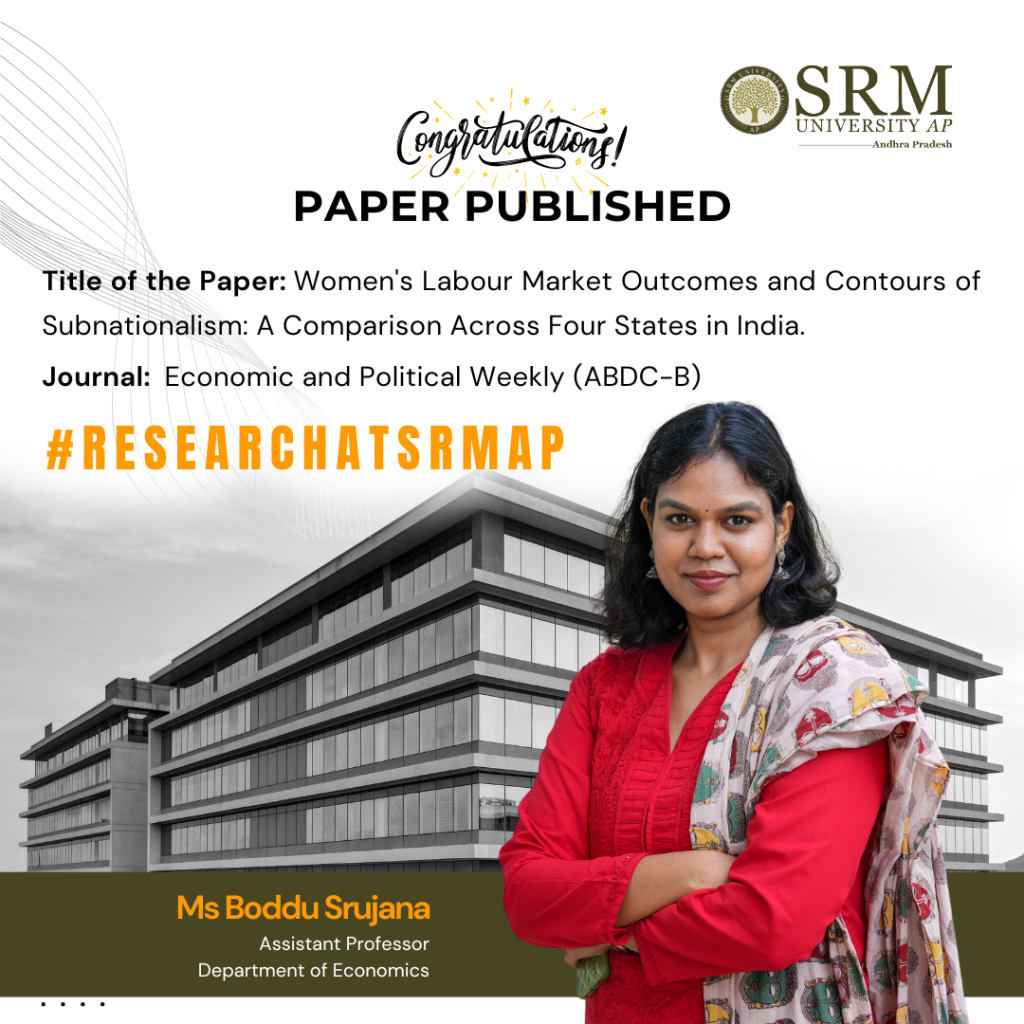
In the wake of the COVID-19 pandemic, societies across the globe were pushed into acute constraints, especially in the absence of employment security and consistency. In this regard, Dr Boddu Srujana, Assistant Professor at the Department of Economics through her research paper titled, Women’s Labour Market Outcomes and Contours of Subnationalism: A Comparison Across Four States in India, scrutinises the impact of the pandemic on women’s employment and thereby explores whether these outcomes were uniformly impacted or if they reveal variations attributable to the political dynamics within these states.
Read the exciting excerpt followed by the link to the article, featured in Economic and Political Weekly
Abstract:
Using, the Periodic Labour Force Survey data for 2018–19 and 2020–21, the article explores shifts in women’s employment outcomes pre- and post-pandemic across four Indian states. The article finds that the states with stronger subnational politics fare better in creating quality employment outcomes for women compared to their counterparts, even during times of crisis such as the recent COVID pandemic. This stands true even for women with disadvantaged social, economic and educational backgrounds.
Practical implementation of research and social implications:
The research highlights the effectiveness of governance and emphasizes social policies over time that can create better job opportunities for women, where they can secure against vulnerabilities even during challenging times such as crises. This leads to greater economic independence, reduces poverty, and promotes social equity.
Collaborators:
The research paper is co-authored with Anagha Tobi and Sipoy Sarveswar.
Anagha Tobi is an Assistant Professor at the Department of Humanities and Social Sciences, Mahindra University, Hyderabad. Sipoy Sarveswar is an Assistant Professor at the Department of Anthropology, Vidya Bhavana, Visva-Bharati, Santiniketan.
Future Plans:
As part of her future research projects in this area, Dr Srujana plans on studying the urban informal labour markets, urbanisation, the dynamics of informalisation, the future of work, and the impact of public policy on labour markets. She is eager to extend her work in these areas by engaging in collaborative research while also partnering with academic institutions, policymakers and NGOs, whereby she aims to contribute to the changing world of work and develop actionable insights that can inform policy and practice
Link to the article.
https://www.epw.in/journal/2024/23/perspectives/womens-labour-market-outcomes-and-contours.html

